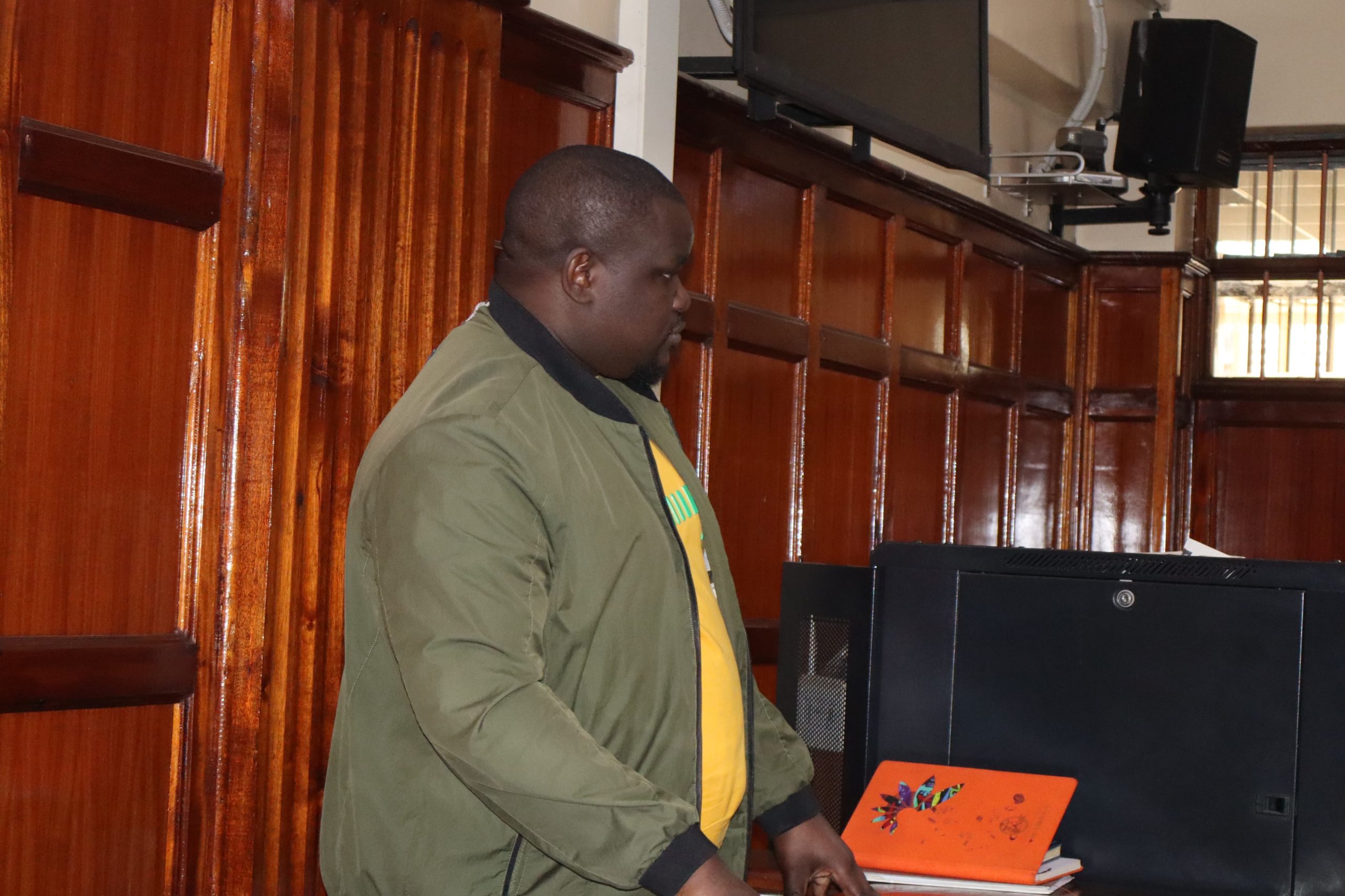Business
Firm Caught Up in Sh7.9M Tax Evasion, Blames Employee For Theft

Corporate accountability questioned as Mkondo wa Afrika Ltd distances itself from agent’s alleged misappropriation of KRA remittances
A Nairobi-based company finds itself at the center of a Sh7.9 million tax compliance scandal after its agent allegedly stole funds earmarked for Kenya Revenue Authority (KRA) payments, raising critical questions about corporate oversight and tax compliance mechanisms in Kenya’s business sector.
Allan Kirawa Ogola, who served as an agent for Mkondo wa Afrika Ltd, appeared before Milimani Law Courts on Thursday facing charges of stealing Sh7,986,742.25 between March 2023 and March 2024.
The funds were allegedly meant for housing levy and Pay As You Earn (PAYE) tax remittances on behalf of the company.
The prosecution, led by the Office of the Director of Public Prosecutions (ODPP), alleges that Ogola was entrusted with the substantial sum specifically for KRA remittances but instead misappropriated the funds.
Senior Principal Magistrate Ondieki granted him a bond of Sh1 million with two sureties or an alternative cash bail of Sh200,000.
However, the case exposes deeper systemic issues within corporate Kenya’s tax compliance framework.
The fact that such a substantial amount could allegedly be diverted over a 13-month period without detection raises questions about Mkondo wa Afrika Ltd’s internal controls and oversight mechanisms.
Pattern of corporate Tax evasion
This case emerges against a backdrop of mounting tax evasion cases involving Kenyan companies. KRA is targeting companies and their directors that exhibited wealth growth but paid nearly the same amount of tax over a period of time.
The authority has been intensifying efforts to crack down on sophisticated tax avoidance schemes that cost the exchequer billions annually.
Recent high-profile cases include directors being charged with millions in tax evasion, highlighting a concerning trend where companies either deliberately evade taxes or, as in this case, claim employee theft as the cause of non-compliance.
The Mkondo wa Afrika case raises uncomfortable questions about corporate responsibility in tax matters.
While the company has filed a complaint through Ahmed Sidgi Kaballo, distancing itself from Ogola’s alleged actions, critics argue that such large-scale diversions of tax funds point to inadequate internal controls.
“When you’re dealing with nearly Sh8 million in tax obligations over more than a year, there should be robust systems to track and verify remittances,” explains a tax compliance expert who requested anonymity.
“The fact that this allegedly went undetected for 13 months suggests either negligence or complicity.”
Ogola, who was initially arrested on June 14, 2025, and released on Sh50,000 cash bail, denied all charges when they were read in court.
The prosecution has lined up witnesses including complainant Ahmed Sidgi Kaballo, Daniel Kuria, and Corporal Francis Mwenda from DCI Gigiri Police Station, who conducted the investigations.
The case is scheduled for mention on July 24, 2025, with a full hearing set for August 18, 2025.
The proceedings will likely scrutinize not only Ogola’s alleged actions but also the company’s role in the oversight of such substantial tax remittances.
The case highlights the vulnerability of Kenya’s tax collection system to internal fraud and raises questions about whether current corporate governance standards are adequate to protect public revenues.
With KRA increasingly relying on third-party agents and corporate self-assessment, the integrity of these systems becomes paramount.
Tax experts note that while companies may claim employee theft as a defense, they remain legally liable for their tax obligations regardless of internal misappropriation.
This places additional responsibility on companies to implement robust internal controls and monitoring systems.
As the case proceeds, it will likely set important precedents for how courts handle cases where companies claim employee theft as a defense for tax non-compliance.
Kenya Insights allows guest blogging, if you want to be published on Kenya’s most authoritative and accurate blog, have an expose, news TIPS, story angles, human interest stories, drop us an email on [email protected] or via Telegram
-

 Grapevine5 days ago
Grapevine5 days agoAlleged Male Lover Claims His Life Is in Danger, Leaks Screenshots and Private Videos Linking SportPesa CEO Ronald Karauri
-

 Lifestyle1 week ago
Lifestyle1 week agoThe General’s Fall: From Barracks To Bankruptcy As Illness Ravages Karangi’s Memory And Empire
-

 Americas2 weeks ago
Americas2 weeks agoEpstein Files: Bill Clinton and George Bush Accused Of Raping A Boy In A Yacht Of ‘Ritualistic Sacrifice’
-

 Investigations1 week ago
Investigations1 week agoEpstein Files: Sultan bin Sulayem Bragged on His Closeness to President Uhuru Then His Firm DP World Controversially Won Port Construction in Kenya, Tanzania
-

 Business2 weeks ago
Business2 weeks agoABSA BANK IN CRISIS: How Internal Rot and Client Betrayals Have Exposed Kenya’s Banking Giant
-

 News2 weeks ago
News2 weeks agoAUDIT EXPOSES INEQUALITY IN STAREHE SCHOOLS: PARENTS BLED DRY AS FEES HIT Sh300,000 AGAINST Sh67,244 CAP
-

 Business2 weeks ago
Business2 weeks agoKRA Can Now Tax Unexplained Bank Deposits
-

 News1 week ago
News1 week agoState Agency Exposes Five Top Names Linked To Poor Building Approvals In Nairobi, Recommends Dismissal After City Hall Probe














